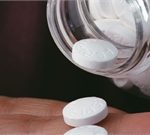
Keep the holidays happy, healthy and safe by following a few guidelines, the American Academy of Pediatrics (AAP) says. “With a thoughtful approach, families can avoid some of the holiday frenzy, and focus on what is meaningful to them,” said Dr. Benjamin Hoffman, chair of the AAP’s Council on Injury, Violence, and Poison Prevention. “We know that children take their cues from their parents,” Hoffman said in an AAP news release. “By taking a step back and slowing down, parents can model better ways to cope with excitement and stress, and enjoy some quality time together.” When possible, maintain your child’s usual sleep and mealtime schedules. Doing so can keep them happy and prevent tantrums. Take care of your physical and mental health. Children are tuned into the emotional well-being of their parents and caregivers. If you cope with stress successfully, your children will learn how to do the same. Don’t overspend on gifts. Help your child make one or two gifts. Do volunteer work and include your child. Toys should suit a child’s age, abilities, skills and interest level. Be wary of toys that contain button batteries or magnets, which can be swallowed by small children and cause serious internal damage. Cooking with children can be a great way to bond. Follow food safety guidelines, wash hands frequently and keep hot foods and liquids… read on >














